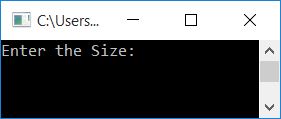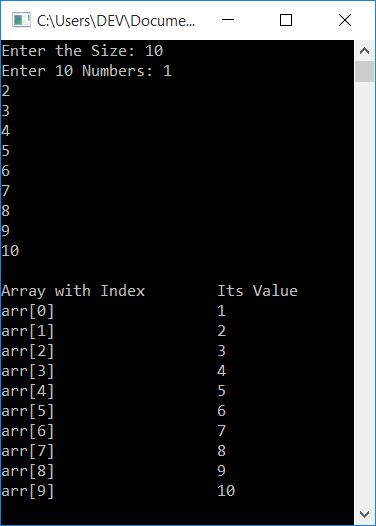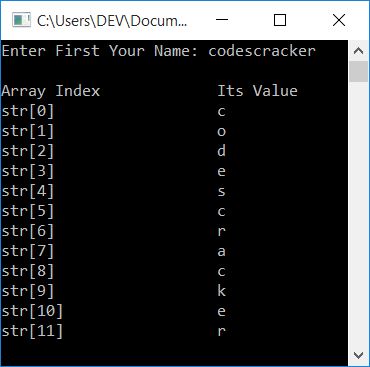- C++ Programming Examples
- C++ Programming Examples
- C++: Hello World
- C++: Get Input
- C++: Print Integer
- C++: Add two numbers
- C++: Add, Sub, Multiply, Div
- C++: Add Digits
- C++: Find Average and Percentage
- C++: Find Arithmetic Mean
- C++: Sum of n Natural Numbers
- C++: Sum of n Numbers
- C++: Square's Area and Perimeter
- C++: Rectangle's Area and Perimeter
- C++: Triangle's Area and Perimeter
- C++: Area and Circumference
- C++: Find Simple Interest
- C++: Fahrenheit to Celsius
- C++: Celsius to Fahrenheit
- C++: Print Prime Numbers
- C++: Reverse a Number
- C++: Swap Two Numbers
- C++: Print Multiplication Table
- C++: Find Factorial of a Number
- C++: Find Factors of a Number
- C++: Find HCF and LCM
- C++: Create a Calculator
- C++: Count Digits in a Number
- C++: First and Last Digit Sum
- C++: Product of Number Digits
- C++: Sum of Squares of Digits
- C++: Interchange Digits of Number
- C++ if-else Programs
- C++: Check Even or Odd
- C++: Check Prime or Not
- C++: Check Alphabet or Not
- C++: Check Vowel or Not
- C++: Check Leap Year or Not
- C++: Check Reverse equals Original
- C++: Check Perfect Number
- C++: Check Palindrome or Not
- C++: Check Armstrong or Not
- C++: Divisibility Test
- C++: Find Labor Wage
- C++: Find Discounted Price
- C++: Find Shipping Charge
- C++: Find Telephone Bills
- C++: Calculate Student Grade
- C++: Largest of Two Numbers
- C++: Largest of Three Numbers
- C++ Number Conversion
- C++: Decimal to Binary
- C++: Decimal to Octal
- C++: Decimal to Hexadecimal
- C++: Binary to Decimal
- C++: Binary to Octal
- C++: Binary to Hexadecimal
- C++: Octal to Decimal
- C++: Octal to Binary
- C++: Octal to Hexadecimal
- C++: Hexadecimal to Decimal
- C++: Hexadecimal to Binary
- C++: Hexadecimal to Octal
- C++ Pattern Programs
- C++: Pattern Programs
- C++: Print Diamond Pattern
- C++: Print Floyd's Triangle
- C++: Print Pascal's Triangle
- C++ Array Programs
- C++: 1D Array Program
- C++: Linear Search
- C++: Binary Search
- C++: Largest Element in an Array
- C++: Smallest Element in an Array
- C++: Find Second Largest Element
- C++: Find Second Smallest Element
- C++: Sum of All Elements
- C++: Multiply All Elements
- C++: Element in Even Position
- C++: Element in Odd Position
- C++: Print Even Numbers in Array
- C++: Print Odd Numbers in Array
- C++: Count Even or Odd Numbers
- C++: Sum of Even or Odd Numbers
- C++: Count Positive, Negative, Zero
- C++: Reverse an Array
- C++: Insert an Element
- C++: Delete an Element
- C++: Merge two Arrays
- C++: Bubble Sort
- C++: Selection Sort
- C++: Insertion Sort
- C++: Common Elements
- C++: 2D Array Programs
- C++: Add Two Matrices
- C++: Subtract Two Matrices
- C++: Transpose Matrix
- C++: Multiply Two Matrices
- C++: 3D Array Programs
- C++ String Programs
- C++: Print String
- C++: Find String Length
- C++: Compare Two Strings
- C++: Copy String
- C++: String Concatenation
- C++: Reverse a String
- C++: Delete Vowels from a String
- C++: Delete a Word from a String
- C++: Count Characters in a String
- C++: Count Words in a String
- C++: Frequency of Words
- C++: Remove Spaces from Strings
- C++: Sort a String
- C++: Uppercase to Lowercase
- C++: Lowercase to Uppercase
- C++: Swap Two Strings
- C++: Check the Anagram or Not
- C++: Capitalize All Words in a String
- C++: Get Numbers from a String
- C++ File Programs
- C++: Read a File
- C++: Write Content to a File
- C++: Append Data to a File
- C++: Read and Display File
- C++: Copy a File
- C++: Merge Two Files
- Count Characters in a File
- C++: Capitalize Every Word
- C++: List Files in Directory
- C++: Delete a File
- C++: Encrypt and Decrypt a File
- C++ Misc Programs
- C++: Print ASCII Value
- C++: Add Binary Numbers
- C++: Generate Random Numbers
- C++: Print a Smiling Face
- C++: Days into Years and Months
- C++: Add Two Numbers using Pointer
- C++: Print Fibonacci Series
- C++: Generate Armstrong Numbers
- C++: Find nCr and nPr
- C++: Get IP Address
- C++: Print Date and Time
- C++: Shutdown and Restart Computer
- C++ Programming Tutorial
- C++ Tutorial
C++ program on a one-dimensional array
In this article, you will learn about and get code for a one-dimensional (1D) array in C++. For example:
int arr[5] = {10, 20, 30, 40, 50};
An array variable is a variable that can hold multiple values of the same type. The term "same type" refers to the variable's (the array's variable) declared type. For example, in the above array, arr can hold up to 5 integer values.
From the above declaration, all the 5 integer values are stored in arr[] in the following way:
- arr[0]=10
- arr[1]=20
- arr[2]=30
- arr[3]=40
- arr[4]=50
Take note that in this case, 0, 1, 2, 3, and 4 are referred to as the array's index. Indexing in an array always starts with 0.
One Dimensional Array Program in C++
To print a one-dimensional array in C++ programming, you have to ask the user to enter the size and elements of the array. Then print it back on output with all its detail, as shown in the program given below:
#include<iostream> using namespace std; int main() { int arr[50], tot, i; cout<<"Enter the Size: "; cin>>tot; cout<<"Enter "<<tot<<" Numbers: "; for(i=0; i<tot; i++) cin>>arr[i]; cout<<"\nArray with Index\tIts Value\n"; for(i=0; i<tot; i++) cout<<"arr["<<i<<"]"<<"\t\t\t"<<arr[i]<<endl; cout<<endl; return 0; }
This program was built and runs under the Code::Blocks IDE. Here is its sample run:

Now supply inputs with 10 as the size and 1, 2, 3, 4, 5, 6, 7, 8, 9, 10 as the elements or numbers to store. Here is the sample run with exactly these inputs:

The following statement appears in the preceding program:
cout<<"arr["<<i<<"]"<<"\t\t\t"<<arr[i]<<endl;
If we separate the items in the preceding statement into static and dynamic output (print), we get the following:
- arr[: static output. Prints the same
- i: dynamic output. Whatever the value of i is ,it is printed.
- \t\t\t: stands for static output. The three tabs are inserted on the output console.
- arr[i]: dynamic output. The value of arr[i] is printed.
- endl: static output, used as newline. That is, the next thing begins with a newline.
Note: Here, "dynamic output" means that the output gets changed with a change in the values of i and arr[i]. Things inside "" are considered static output.
The previous array is of type int (integer). Therefore, that array can hold up to 50 integer values with the same variable variable arr[], just by changing its index. Now let's try an array with its type set to char (character) to store characters.
#include<iostream> using namespace std; int main() { char str[50]; int i=0; cout<<"Enter First Your Name: "; cin>>str; cout<<"\nArray Index\t\tIts Value\n"; while(str[i]) { cout<<"str["<<i<<"]"<<"\t\t\t"<<str[i]<<endl; i++; } cout<<endl; return 0; }
Here's a test run with user input, codescracker:

The same program in different languages
- C One-Dimensional Array Program
- Java One-Dimensional Array Program
- Python One-Dimensional Array Program
« Previous Program Next Program »